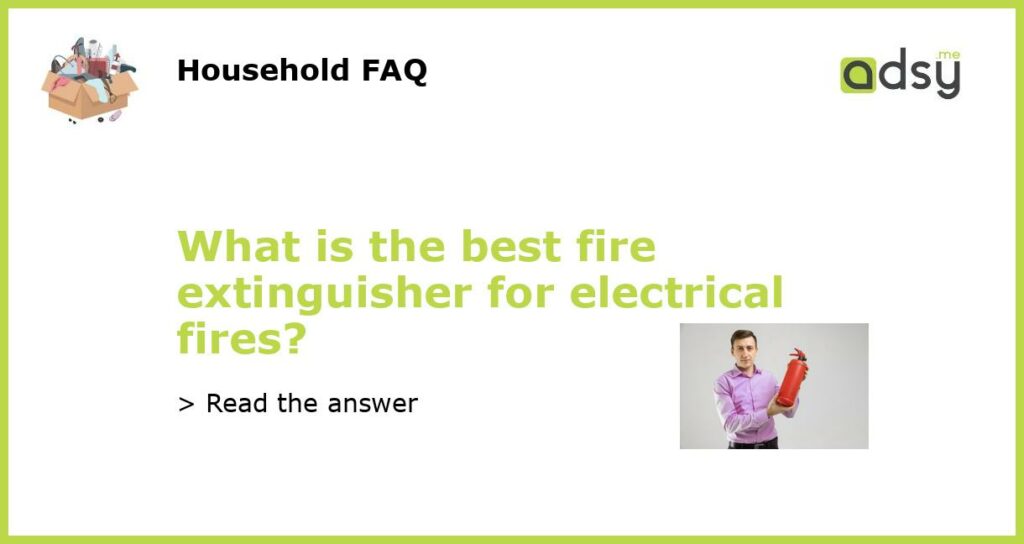Understanding the Different Types of Fire Extinguishers
Before delving into the best fire extinguisher for electrical fires, it’s essential to understand the different types of fire extinguishers available in the market. Fire extinguishers are classified by the type of fire they are designed to tackle, with each class of fire requiring a specific type of extinguisher.
Class A extinguishers are designed to tackle fires caused by ordinary combustibles such as wood, cloth, and paper. Class B extinguishers, on the other hand, are designed to tackle fires fueled by flammable liquids such as petrol and diesel. Class C extinguishers are designed to tackle electrical fires.
Other classes of extinguishers include Class D, which handle fires on combustible metals, and Class K extinguishers, which are designed to tackle fires in the kitchen caused by cooking oils and fats.
The Best Fire Extinguisher for Electrical Fires
While Class C extinguishers can handle electrical fires, water-based extinguishers can do more harm than good when used on such fires. The best fire extinguisher for electrical fires is, therefore, a Class C extinguisher that’s specifically labeled as safe to use on electrical fires.
The most common type of fire extinguisher suitable for electrical fires is the dry chemical extinguisher. These extinguishers contain a powered chemical that can knock down flames and extinguish fires by creating a barrier between the fuel and the oxygen.
Factors to Consider when Choosing a Fire Extinguisher for Electrical Fires
When selecting a fire extinguisher for electrical fires, there are several factors you should consider. First, consider the size of the fire extinguisher. Depending on where the extinguisher would be placed, you may need a small, portable one or a larger one suited for bigger spaces.
You should also consider the weight of the extinguisher. If you’re looking for a domestic fire extinguisher, you probably want something light and easy to handle. However, for commercial uses, a heavier one that carries more extinguishing agent may be more appropriate.
Another factor to consider is the extinguishing agent. While dry chemical extinguishers are the most commonly used for electrical fires, there are other types of extinguishers such as CO2 extinguishers that can also be used on electrical fires.
Maintaining Your Fire Extinguisher
Once you’ve purchased a fire extinguisher, it’s important to remember that it must be properly maintained to ensure it will function when you need it most. Make sure that you place it in a visible and easily accessible location that’s out of reach of children.
You should also schedule regular maintenance and inspections for your fire extinguisher to ensure it’s in good working condition. Check the pressure gauge regularly to ensure that the extinguisher is still full, and that there are no cracks or damages to the cylinder.
When it comes to extinguishing electrical fires, it’s crucial to have the right type of fire extinguisher. A Class C extinguisher that’s properly labeled as suitable for use on electrical fires, and which contains a dry chemical extinguishing agent, is the best option. Remember to consider factors like size, weight, and agent type, and to maintain your extinguisher properly to ensure it’s ready for use when you need it.






